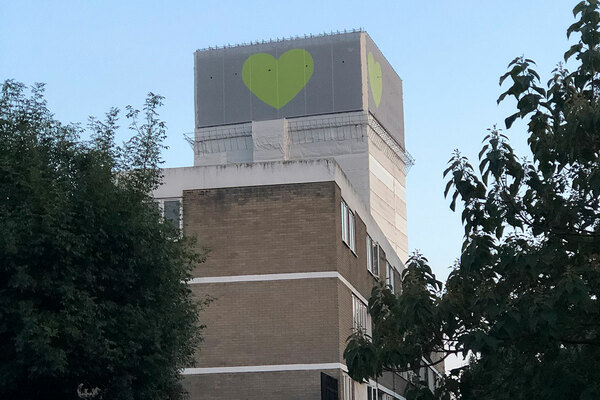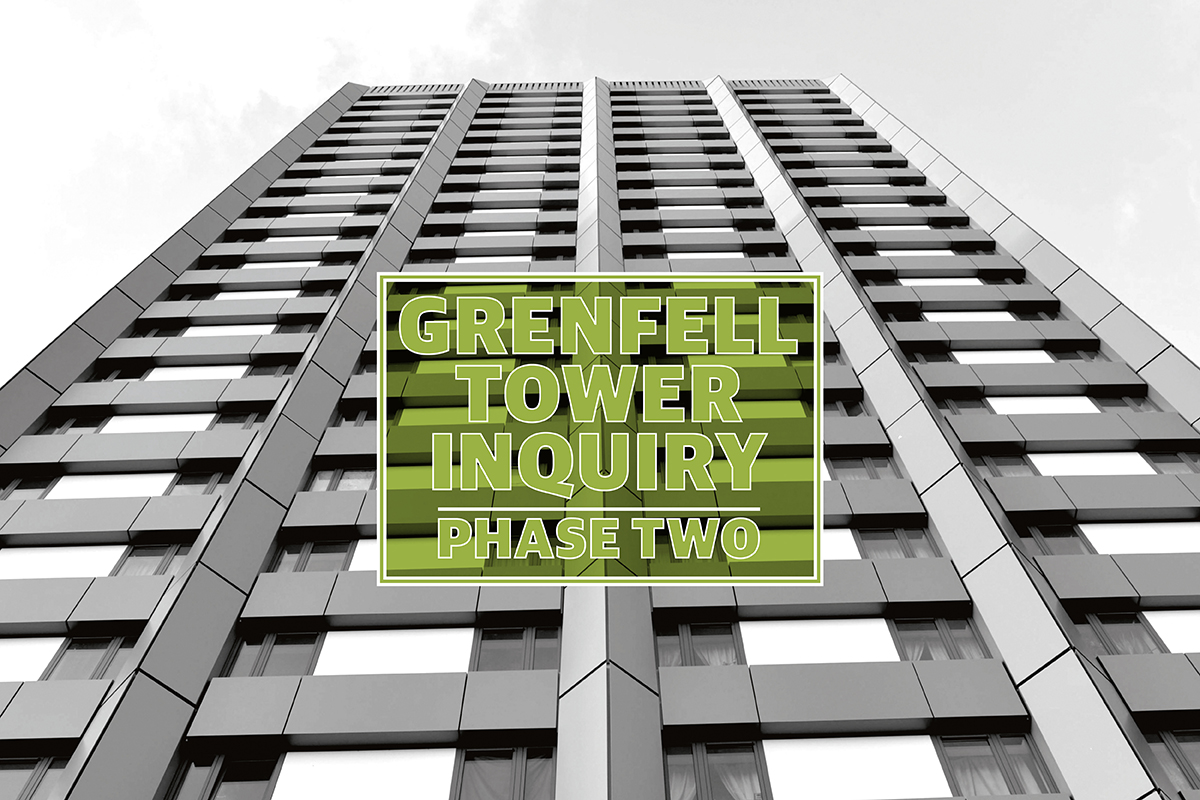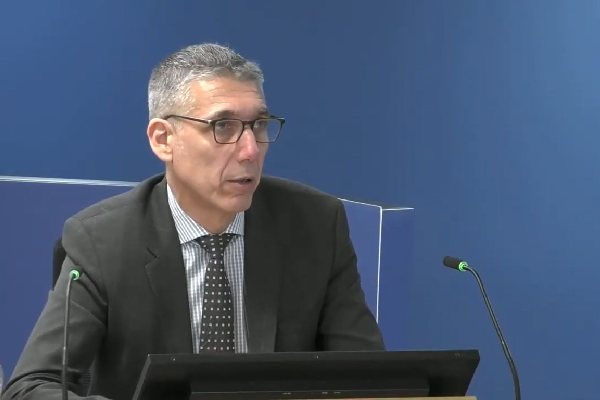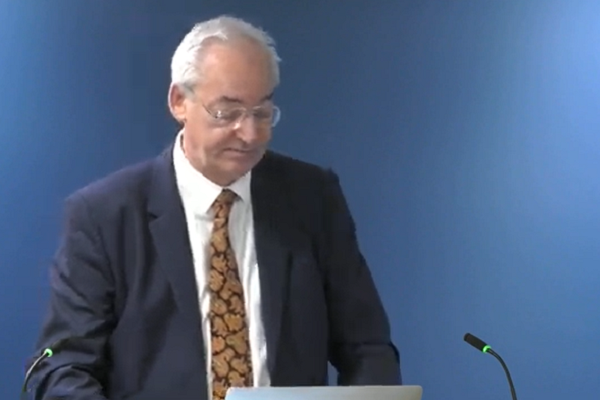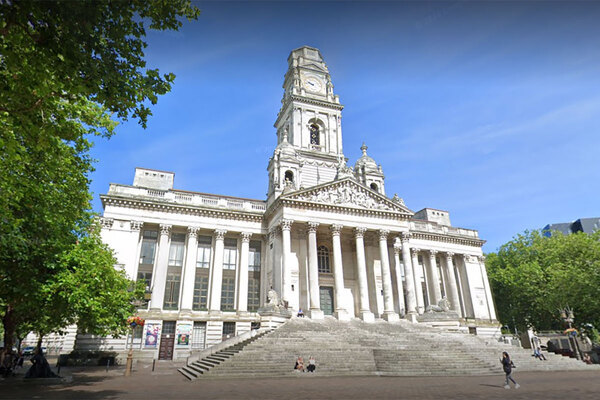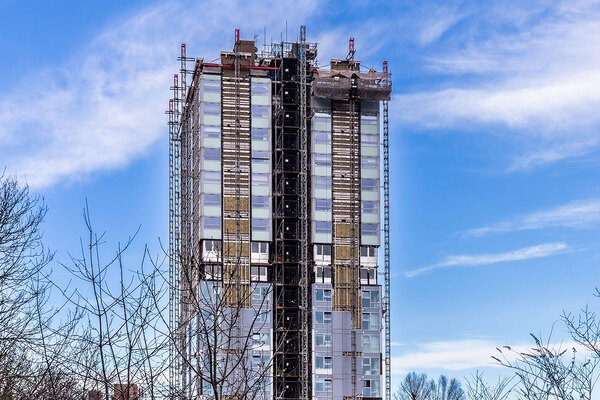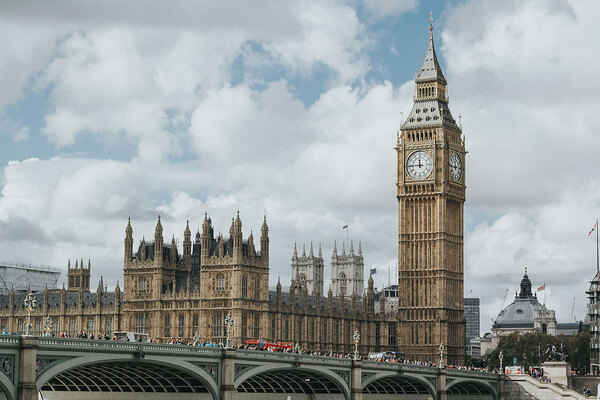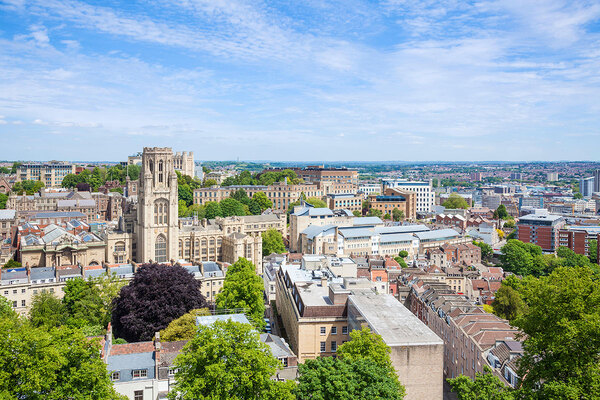Government fire policy ‘an abdication of responsibility to protect life’, Grenfell Inquiry hears
Policies of localism, deregulation and austerity with regard to fire services amounted to “an abdication of responsibility” by the British state with “disastrous consequences” at Grenfell Tower.
This was the argument of lawyers representing bereaved families and survivors of the June 2017 blaze as the mammoth public inquiry turned to the actions of central government today.
In the opening session of this evidence, which will run for five months and begins with consideration of the fire service, one lawyer revealed that the UK’s fire policy was described by a senior civil servant in 2001 as “benign neglect”.
The inquiry also heard harrowing transcripts of 999 calls made by victims of the fire, with the barrister representing their families calling the advice they were given “woeful” and linking it to policies of “deregulation and austerity” set at the highest levels of government.
In the first opening statement, Danny Friedman QC, representing one group of bereaved and survivors, set out a potted history of fire reforms in the UK which he linked to the failure to prepare adequately for the Grenfell Tower blaze,
He cited advice sent by a senior civil servant to Labour fire minister Nick Raynsford in 2001 which said firefighting policy “won’t take up too much of your time. The policy is one of benign neglect”.
The civil servant allegedly described the fire service as “big enough to cause political trouble if confronted [but] small enough to be ignored without any apparent adverse consequences, at least in the short term”.
Nonetheless, Mr Friedman said major reforms introduce by Labour in 2004 were a “watershed” moment which a “history of the Grenfell Tower fire, even a modest one” should take account of.
These reforms essentially introduced a policy of localism - abolishing the Central Fire Brigade Advisory Council and allowing local fire services to set their own goals.
He said the effect of localism was to “transfer the difficult political decisions to local government and chief officers who, certainly in London, have yielded to pressure to keep things the way they are”.
This was compounded, he said, by further reforms introduced by the coalition government after 2010 which were “not so much a rejection of the New Labour approach but an intensification of the pre-existing localism policy this time married to a deregulatory zeal”.
This resulted in a detailed inspection regime of fire authorities being abandoned and replaced with a less rigorous system of peer review and the Fire Service College - which ran fire service training - sold to outsourcing provider Capita in 2013 and told to compete with other training providers for contracts.
Responsibility for the fire service within central government was also bounced between departments and underwent a 50% cut in staff, with a 2013 report written by a senior civil servant concluding that the government’s fire safety policy team “no longer have access to the necessary technical expertise” to produce effective policy.
Mr Friedman said that austerity cuts were also significant – pointing to National Audit Office figures that estimate an average of 28% cuts for fire services across the country and 19.2% in London – once council tax was factored in.
“There’s nothing like a funding cut to render a conservative and slow-to-change organisation that much more conservative and slow to change,” he said.
He said cuts targeted areas that did not involve station closures, or a reduction in firefighters or fire engines as this was “politically easier and more conducive to labour relations”.
“This is significant,” he said. “Because while there is no sensible basis to argue that more firefighters, stations or appliances would have improved the LFB response to the Grenfell Tower fire, it is now obvious that better prevention, protection, policy and training would have done. Austerity prohibited those things.”
He continued: “Localism amounted to an abdication of the state’s general human rights duties to establish an effective legal and regulatory framework to protect life. Whole building fires brought about by complex modern building techniques were something successive governments should have planned for and assisted fire services to deal with.”
He said that especially after Lakanal House the government should have “participated more directly” in efforts to develop an alternative to ‘stay put’ and should not have stood by “unlawful and discriminatory guidance” which suggested that plans for evacuating disabled residents were unnecessary.
“Instead, there was fragmentation, lack of oversight and tolerance of sub-optimal competency as regards modern construction. And all of that came unstuck at Grenfell Tower with disastrous consequences,” he said.
Professor Leslie Thomas QC – appearing for another group of bereaved and survivors – used much of his opening statement to read extracts from the 999 calls of some residents of the fire, including many who died in the blaze.
He said that these transcripts “make for chilling reading and harrowing listening” and “laid bare the threads of the institutional failings of the LFB”.
He said the calls demonstrated “an absolute lack of awareness of the needs of the vulnerable”, the lack of any system for communication within the control room and that ‘stay put’ was applied as “an article of faith” – echoing the words of inquiry chair Sir Martin Moore Bick in his report into the night of the fire.
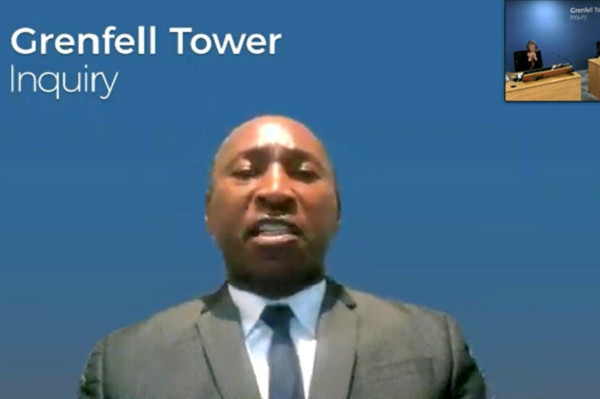
The calls he read out included one by the El-Wahabi family – a mother, father and three children – who lived in Flat 182 on the 21st floor and all died in the fire.
He called the advice they were given “woeful” and said it highlighted “the inexperience, lack of training and dearth of real-time knowledge in the control room, as well as highlighting the poor communications to and from the incident ground”.
He explained how the family first called 999 at 1.38am and explained that they could not get down the stairs because of the smoke, and that the flat next door was on fire.
They were told to remain where they were and were assured that firefighters were attending, and they were not told to leave for another hour despite fire penetrating their kitchen. Relatives watching outside could see the fire reaching the flat and had implored them to leave.
He said the failures of the control room related to “cuts and deregulation” and referenced a 2013 review of the fire service carried out by Sir Ken Knight, then-chief fire and rescue advisor and the current chair of the government’s expert panel on building safety.
This report said that savings “can and should be made” by providing control rooms “in a single location with fewer staff”.
“Events on the night of the 14th of June 2017 show how narrow, short-sighted and dangerous this review was,” said Professor Thomas. Sir Ken is due to give evidence in Module Six.
Professor Thomas also cited a Fire Brigades Union (FBU) report published in 2017 that said control rooms were “at breaking point” due to “more than a decade of failed government policy characterised by cuts, mergers and underinvestment”.
“We say this is relevant and pertinent in the light of the performance of the control room that night, working out of a smaller room in Stratford [east London], with no television, nothing to show them in real time what was happening on the fire on the ground,” he said.
He also said the call transcripts showed evidence of discrimination – with a lack of attention paid to vulnerabilities or those who had English as an additional language.
“We raise these points not to assert that the control room operators were actively behaving in a discriminatory way, but to illustrate how poor training, poor practices and poor implementation of policies might result in discriminatory practices,” Professor Thomas said.
The lawyers for the bereaved and survivors were followed by short opening statements by lawyers acting for the FBU and the London fire commissioner.
Speaking for the FBU, Martin Seaward said the control room was not equipped to cope with more than six calls from trapped residents – known as ‘fire survival guidance’ calls – at any one time.
The control room received 20 of these calls between 1.24am and 1.30am, which he said “outstripped the capacity” of both staff and policies.
“[The control room officers] were swamped and they did their best,” he said. “We say it’s unfair, that they should have to bear personal criticism from this inquiry for shortcomings caused by the underlying systemic failings and their inability, despite doing their best, to overcome them in truly extraordinary circumstances.”
This was echoed by Stephen Walsh QC, appearing for the commissioner, who said the brigade received more fire survival guidance calls on the night of the fire than in the previous 10 years combined.
“If there are failings, it is not of those individuals. They will be systemic. And the London fire commissioner was very firm about that,” he said.
The inquiry’s investigation into the role of central government and the fire service will run for five weeks and will feature evidence from former LFB commissioner Dany Cotton and the current incumbent Andy Roe.
The broader investigation into central government will also consider its role in the testing and certification of building products, fire risk assessments and a general look at its role in producing adequate building regulations and responding to prior fires and inquiries.
The entire module is set to run until March 2022 and will feature witness evidence from former ministers including Eric Pickles, Brandon Lewis and Gavin Barwell.
The inquiry continues.
Sign up for our weekly Grenfell Inquiry newsletter
Each week we send out a newsletter rounding up the key news from the Grenfell Inquiry, along with the headlines from the week
Already have an account? Click here to manage your newsletters
